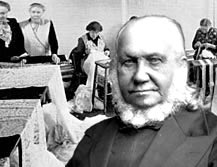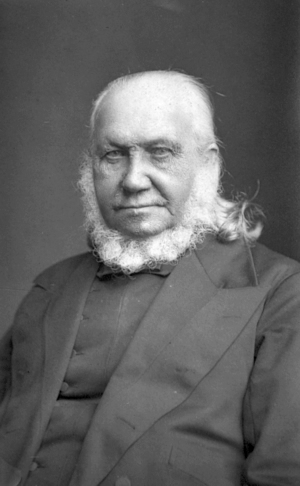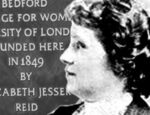Description
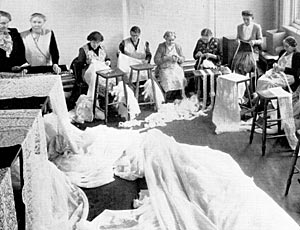 Meet the Nottingham Lace Workers, one of whom, Diggory Lawson, is far better read in history and antiquities than the bourgeois “smart set” he thinks he should aspire to joining. Diggory is the hero of a moral short story, about not turning your back on your class origins, entitled “The Lad who Felt Like a Fish Out of Water”. It was published in 1845 by the Chartist leader Thomas Cooper, himself an accomplished self-taught classicist and a poet.
Meet the Nottingham Lace Workers, one of whom, Diggory Lawson, is far better read in history and antiquities than the bourgeois “smart set” he thinks he should aspire to joining. Diggory is the hero of a moral short story, about not turning your back on your class origins, entitled “The Lad who Felt Like a Fish Out of Water”. It was published in 1845 by the Chartist leader Thomas Cooper, himself an accomplished self-taught classicist and a poet.
Diggory’s father is only a poor lace-weaver, but he is so determined to do his best for his son that he sacrifices everything to keep him at school. He also teaches his son out of school hours, “in the mathematics, in astronomy, in dialling, in botany and floriculture, in history and antiquities”.
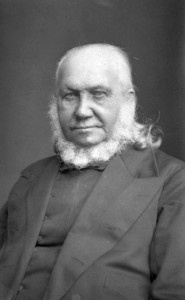 When Diggory grows up, his father wants him to live like a leisured gentleman and not work with his hands. When Mrs. Strutabout, the lace-merchant’s wife, invites Diggory to tea, his father is certain that it would be “a step towards making Dig into a gentleman. An introduction to genteel society, to ‘respectable’ company—what could be finer?”
When Diggory grows up, his father wants him to live like a leisured gentleman and not work with his hands. When Mrs. Strutabout, the lace-merchant’s wife, invites Diggory to tea, his father is certain that it would be “a step towards making Dig into a gentleman. An introduction to genteel society, to ‘respectable’ company—what could be finer?”
But the level of conversation at the genteel Strutabout household appals Diggory. “If they had talked of anybody he knew from books, either of Socrates or Alexander, of Cicero or Cæsar, of Wat Tyler or John of Gaunt… or of anybody that was ‘worth talking about’… Diggory could have talked, ay, and in good, thundering, long-syllabled words, too, as well as any man or youth in the three kingdoms. But to take up a full half-hour in prattling about—Lord! he could not describe it when he returned home, it was such infantile sort of stuff as he had never supposed mortals uttered in ‘respectable’ or any other sort of society!”
Diggory tries to become a middle-class businessman, but his lack of know-how about how to behave at a gentleman’s dining club embarrassingly exposes his true class background. He returns, with relief, to the manufacturing life in Nottingham, where he lives happily ever after, “associating with plain, sensible men, and cultivating knowledge in his leisure hours”.

